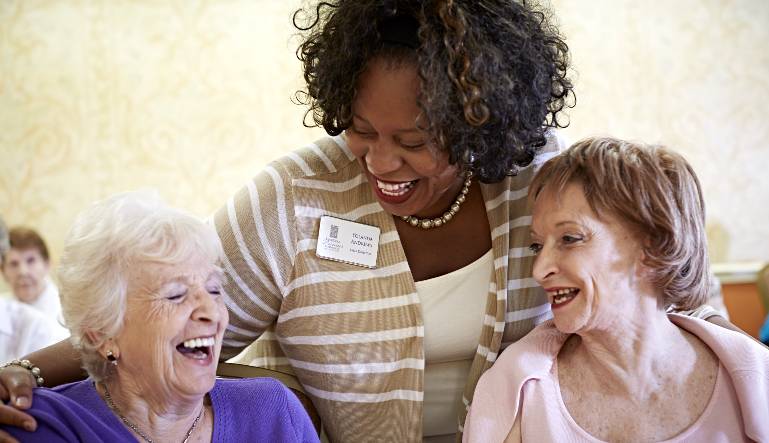<!–[CDATA[The responsibility of providing care can be challenging no matter how resilient you are. Being responsible for a senior loved one’s well-being can lead to increased agitation and worry. Research shows that anxiety can take a toll on a caregiver’s health and wellness, both mentally and physically.
According to the Centers for Disease Control and Prevention, 29 percent of family caregivers say they have a tough time managing their anxious feelings. Finding healthy ways to reduce anxiety levels is important for both the care provider and their loved one.
Five Tips for Managing Caregiver Anxiety
1. Ask for and accept help
We start with this suggestion because it is so important. Family caregivers often feel duty bound to handle all of their loved one’s needs on their own. While it is a noble goal, it isn’t a very realistic one.
Enlist the support of friends, relatives, and even professional in-home care providers. They can supplement the work you’re doing. Think about what tasks you need help with and who you can turn to for assistance.
2. Practice healthy self-care
It might feel indulgent to worry about yourself when a senior loved one’s health is declining. The truth is, by practicing good self-care you will be a better caregiver.
That means making time for exercise most days of the week, getting eight hours of sleep each night, and eating a well-balanced diet. It also means nurturing the spirit. This could include enjoying a laugh with friends, meditating every morning, or taking daily nature walks at a local park.
3. Manage your expectations
Instead of having unrealistic expectations, make your goals more reasonable. This applies to your caregiving, your job, and your family. For example, an immaculate house might be nice, but it isn’t realistic when you are juggling so many roles. Remember that balance is important.
Along these same lines is practicing positive self-talk. Don’t beat yourself up over small, unimportant issues. Instead, focus on what you have accomplished and the difference you are making in the life of your senior loved one.
4. Get and stay organized
Feeling disorganized when you are so busy can cause more anxiety. It can leave a caregiver with the nagging feeling that they are going to forget an appointment, neglect to refill a medication, or fail to follow-up on another important task.
Take time to get organized. Create a binder of the senior’s important medical information. Find a smart phone app to help you plan your time and stay on track. When you feel organized and in control of your schedule, you’ll likely find your anxiety drops.
5. Learn from fellow caregivers
Connecting with fellow caregivers is another way to manage your anxious feelings. You’ll probably find it comforting to know that others are suffering from the same self-doubts and fears you are.
Networking with your peers might also help you pick up tips about managing issues such as insomnia, transportation, and nutrition. Caregivers often find it easier to join an online support group when the days are already busy.
Respite Care at Five Star Senior Living
No two caregivers are alike when it comes to managing anxiety. What works for one, might not work for you. Sometimes what a busy caregiver really needs is time to rest and restore their sense of well-being.
Short-term respite care at a Five Star Senior Living community might be an ideal solution. Your loved one can stay with us for a few days or weeks while you take a break. Call us at (853) 457-8271 to learn more!

